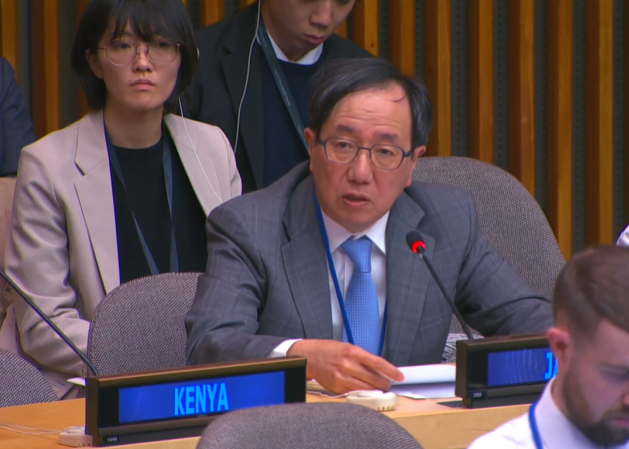Statement by H.E. Ambassador YAMAZAKI Kazuyuki, Permanent Representative of Japan to the United Nations, at ECOSOC Operational Activities for Development Segment "Session 9: Supporting countries in implementing the SDGs in complex settings: interlinkages between development and peacebuilding"
2025/5/22

(As delivered)
I would like to extend my sincere gratitude to Ambassador Szczerski, Permanent Representative of Poland, for convening this meeting. Your leadership and commitment to foster meaningful discussion as Vice Chair and Informal Coordinator between the PBC and ECOSOC are truly appreciated.
I also express my gratitude to the ASGs and to RCs for their very lively inputs. To attend this meeting, I considered several elements, but I found that those elements I’m sharing with you very much overlap what already ASGs or RCs have mentioned. But that means that we are probably heading in the same direction, so I just wanted to tell in advance.
Development does not exist without peace and peace does not exist without development. Japan believes in a comprehensive approach to conflict prevention, peacebuilding, and sustaining peace, based on the concept of human security, that addresses the complex and multi-faceted root causes of conflict and emphasizes the humanitarian-development-peace (HDP) nexus. To this end, the link between development and peace should be included in various ongoing UN processes such as the FfD4 and the Peacebuilding Architecture Review.
I would like to highlight three points that are critical to strengthening the link between development and peace in supporting nationally owned and led efforts. These efforts should be taken into account in the ongoing processes of UN development system reform.
First, it is important to strengthen the role of the Peacebuilding Commission. As Vice-Chair of the PBC, Japan believes that the body could utilize its advisory, bridging, and convening role more effectively to advocate for and facilitate discussion between all relevant actors to refine their efforts. In this respect, ECOSOC could advance its engagement in conflict settings by deepening collaboration with the PBC through modalities such as joint meetings and written advice.
Second, it is essential to support countries’ transitions from the humanitarian to the development phase. Resident Coordinators (RCs) are the leading actors for this transition as they play a pivotal role in ensuring the HDP nexus. The PBC is well-positioned to gather and disseminate insights from the RCs to allow for better coordination across the UN system.
Finally, institution-building and investment in people should be the cornerstone of any conflict prevention and peacebuilding efforts aimed at achieving long-term development goals, including the SDGs. This approach is fundamental to empowering local and national ownership with a sense of inclusion as well as restoring the trustworthiness and legitimacy of the national government. Development partners must work closely with national and local actors including women, youth, and civil society to promote peace through a human-centered approach.
To conclude, Japan remains committed to achieve sustaining peace and sustainable development.
I thank you.
